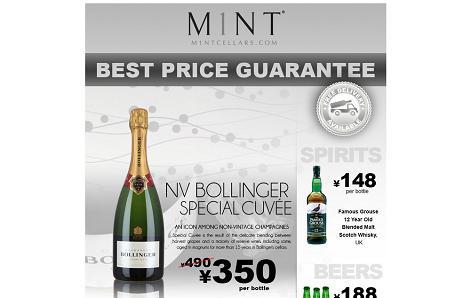By Jim Boyce
I took two bottles of wine to a radio interview in Beijing yesterday.
Reason #1: The topic was Chinese wine so I wanted the host to try a few.
Reason #2: I wanted something to sip while we talked about whether or not China will flood the world with plonk.
First, let me note that I rank among the most annoying radio interviewees. I like to do shout outs: “If Robert Parker is listening, I just want to say, ‘Keep it real, Bob. Keep it unctuous’.” I grab the mic on breaks and yell stuff like, “WE’RE ROCKIN’ AND ROLLIN’ ON A TUESDAY NIGHT IN ‘THE JING‘! FOR THOSE STUCK IN TRAFFIC, HONK IF YOU LOVE PARTICULATE MATTER!” And on this occasion, I convinced the host to let me do that trick where you suck in air with wine still in your mouth so that it sounds like the last few ounces of dishwater choking down a drainpipe. Etc. Fortunately, the interview will be edited and air later, so none of that is likely to make it to the public.
Next, the interview:
How do wines from China compare to those from elsewhere?
Not well. We do see good wine from China: I am a fan of wineries like Silver Heights in Ningxia and Grace Vineyard in Shanxi. And last year, I helped organized a tasting of 39 Ningxia wines by 15 judges, including Jancis Robinson, that used a scoring system with a cutoff point labeled “commercially acceptable“. Almost every wine was above that mark though most of them cost rmb500 (USD81 / EUR63) or more. But the vast majority of wine made in China still can’t compete on a world level either because it isn’t very good, it’s too expensive or both.
Why?
Taste and quality have traditionally been lower priorities for wine consumers in China. People tend to buy wine for the brand name, price or health benefits, not for the taste. I think local producers have always in a position to increase quality through changes in the vineyards or in the wineries but it made more sense to them to focus on marketing. But now they have more motivation to focus on quality.
Why?
Customers are learning about wine from the Internet, from trips abroad and from simply opening more bottles and they increasingly buy based on taste. Also, Chinese wines have been winning medals in overseas competitions and this helps inspire more people to focus on quality at home. But the biggest reason is that inexpensive wines from Spain and Chile and elsewhere are putting pressure on big China producers. They are taking market share. You can find nice imported wine for under rmb50 per bottle and that is an attractive alternative to cheap Chinese wine.Will we see China flood the world with cheap wine in a few years?
Probably not. Even if Chinese wine gets much better, it is relatively expensive to make. There is a widespread belief that labor is cheap in China but wine companies in the northwest have a problem finding seasonal workers, one that will get worse as vineyards spread. In Xinjiang grapes are picked at the same time as crops such as cotton, so there is competition for workers, plus that region is so huge there can also be transportation and housing costs. And all across northern China vines need to be buried in the winter to protect them from the cold, so that means even more labor. That’s just one major issue of concern. Another is water resources.
Also, everyone in the wine world wants a piece of the China market. Why would local producers want to go out and face stiff competition from Chile, Australia, South Africa and so on when their home is the market that everyone else is drooling over? Plus, they already have enough challenges competing against those imported wines here in China. Perhaps some niche operators will focus on selling abroad but, on the whole and at least in the near term, the main benefit of winning awards or selling wine outside China is to help market those same wines at home.
–
The above isn’t verbatim. It simply summarizes some points from the interview. And it doesn’t reveal how well-prepared the host was: she had visited a Chinese winery in Hebei that afternoon and done quite a bit of research. For example, she asked how two bottles of wine under the same label but purchased a month apart could taste so different. One possibility: they contain different wine as some producers blend local and imported bulk wine and this impacts consistency. Anyway, it was a fun interview, and all I can say is, ‘If you’re listening Bob, keep it real’.
